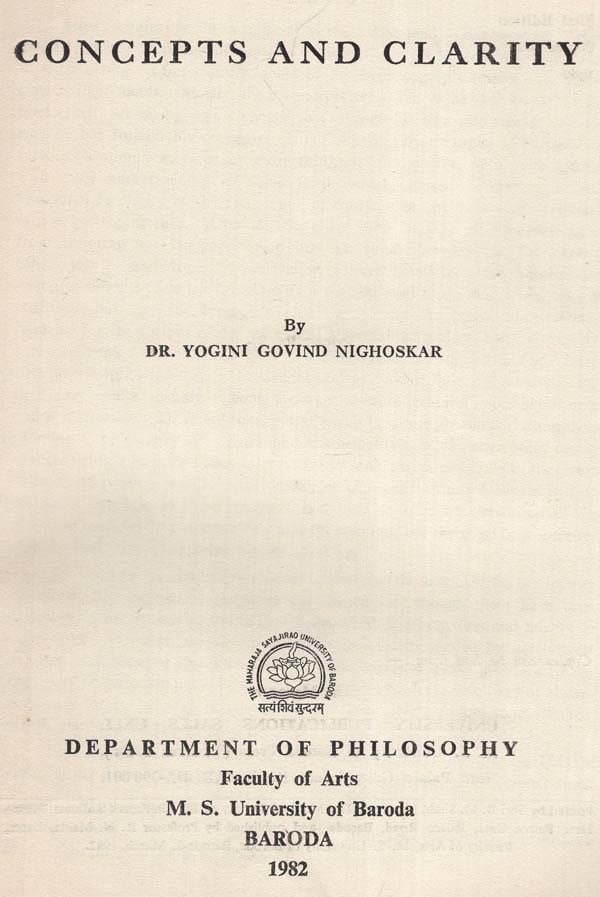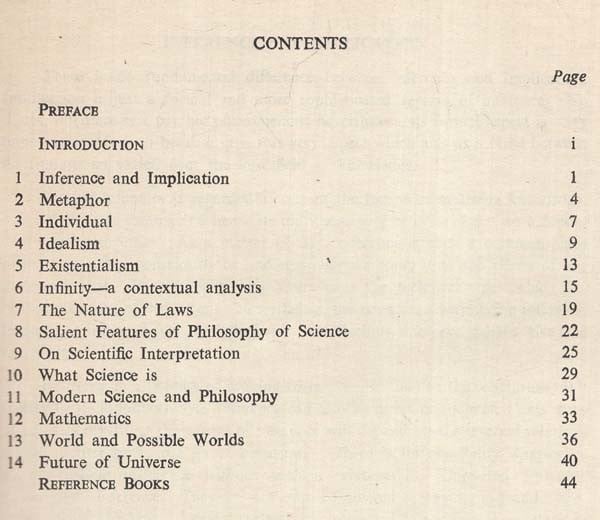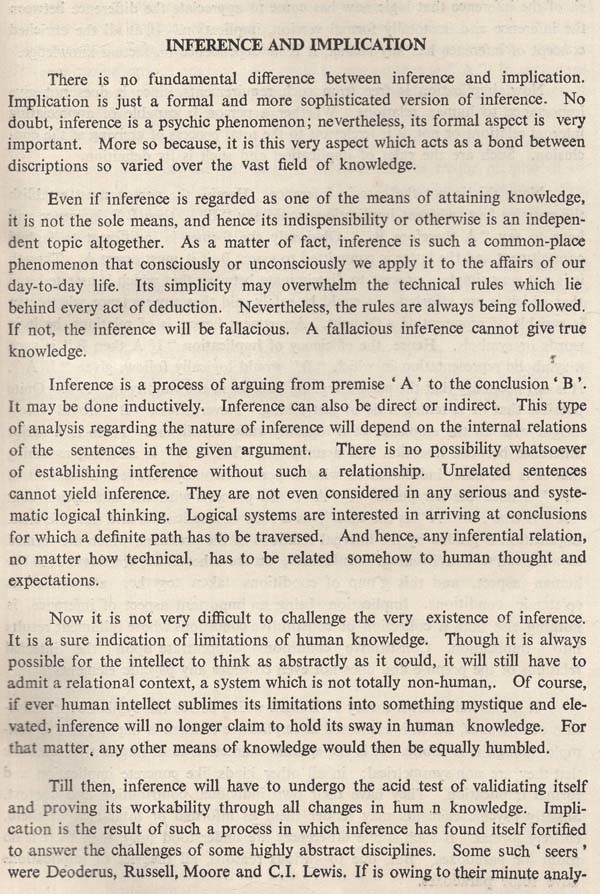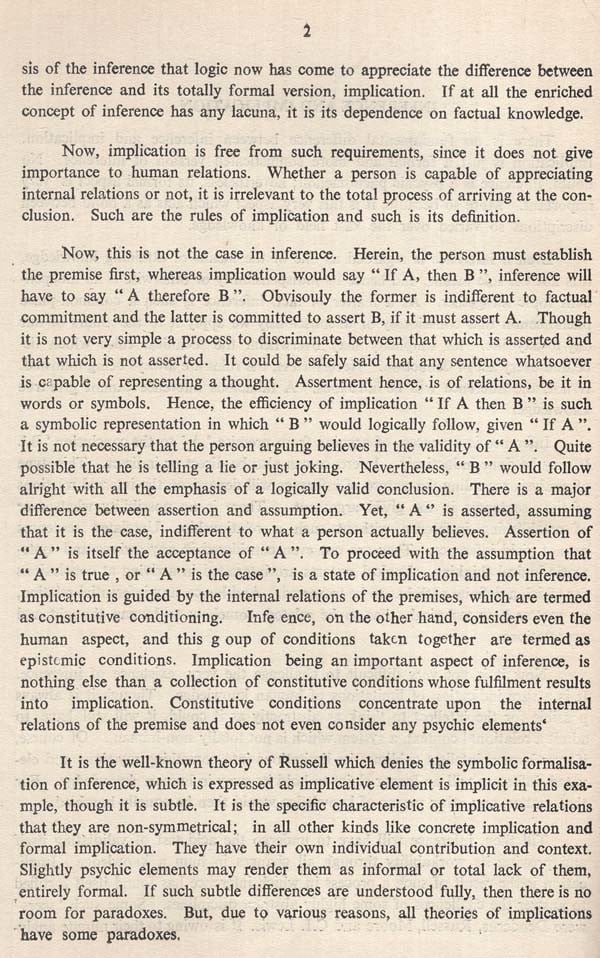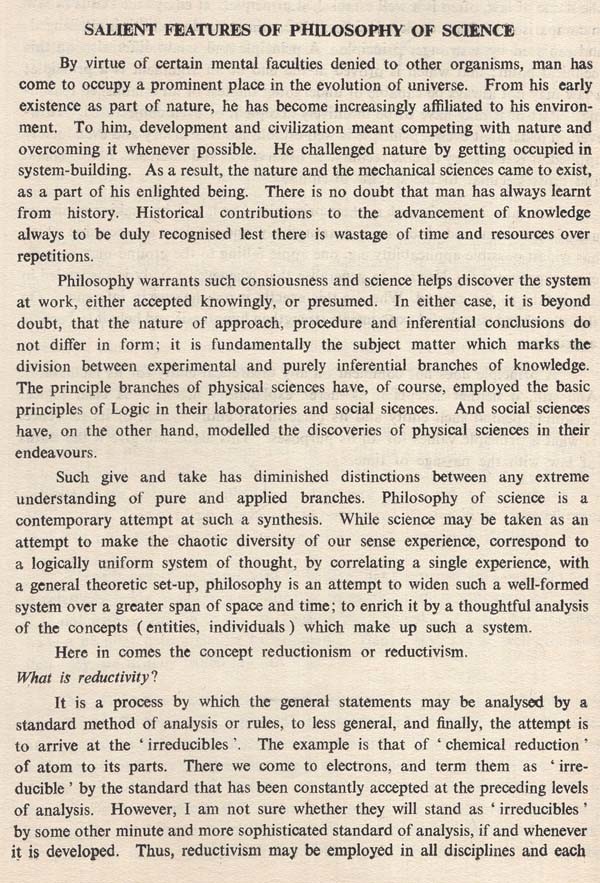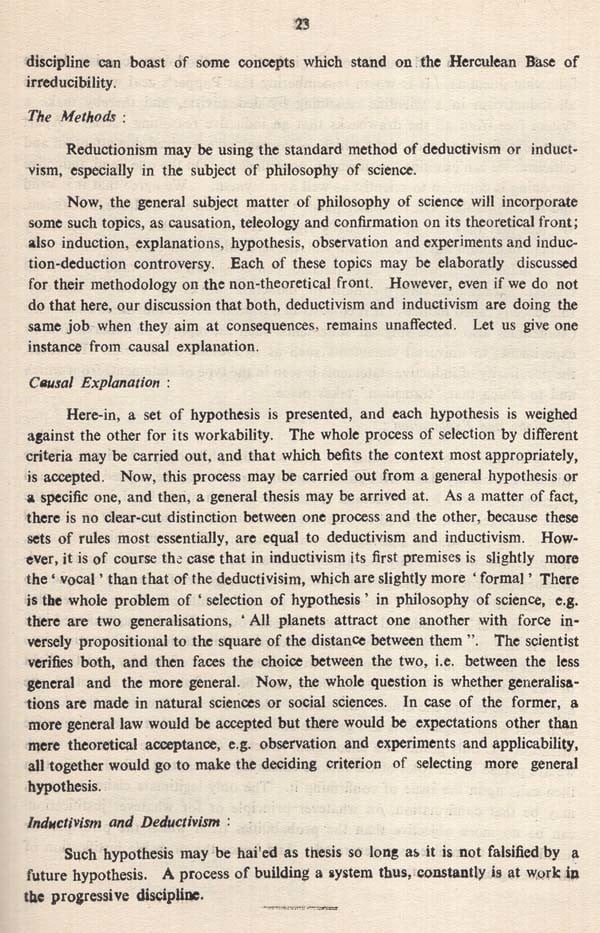
Concepts And Clarity (An Old and Rare Book)
Book Specification
| Item Code: | UAR767 |
| Author: | Yogini Govind Nighoskar |
| Publisher: | The Maharaja Sayajirao University of Barodra |
| Language: | English |
| Edition: | 1982 |
| Pages: | 43 |
| Cover: | PAPERBACK |
| Other Details | 10.00 X 6.80 inch |
| Weight | 80 gm |
Book Description
Most technical books in philosophy these days tend to devote most of their space to the development of any one system of thought, or to the specialisation of their choice. Consequently, some of the basic concepts receive little attention at their hands. Mostly, these concepts are taken to be well known to the reader, without giving him a chance to challenge his own information and the way he has formed his concepts. This book of various topics is designed to serve as a stimulator to many more thinkers, who, so far, were quite content with their understanding of some fundamental concepts. Whether I have succeeded in clarity of these concepts, of course may remain a secondary issue of meagre significance. After all, there are other aspects of expression apart from choosing our language. And here in, some thoughts may be evident. others just in undertones. Nevertheless, I have taken little for granted, and hence, at times, I have tried to simplify a thought even at the cost of elegance of language but then the concept needed clarity, and the essays had to remain readable for the curious reader, as well as a specialised philosopher. Obviously, a professional, for example in logic or existentialism is expected to find Inference and Implication and Existentialism as having little information. But then, they would certainly welcome a change to more technical issues like science and mathematics. There are some essays which breath in the similar atmosphere of science, philosophy of science and mathematics. While attempting clarity in these fields, I have also been informative to some extent especially in the essays world and possible worlds' and Future of Universe. Since I have raised no particular problem in these essays, I had little to offer as conclusion of the problem; it would be too much to claim the solution, but there has been some re marks which may project my line of thinking.
As a matter of fact, anyone's enthusiasm may be humbled by the infinite number of fundamental concepts in each discipline; though there have been sincere attempts by master brains and I cherish their martyrdom and fidelity to philosophy. However, my choice of topics was totally guided by my interest in some such concepts that I have listed. The reference books mentioned have been read at various points of time, and hence, an exact reference has not always been easy for me; though of course, I have been able to quote some of their details elsewhere in the essays.
I am thankful to the M. S. University authorities for allotting the U.G.C. grant for my work. I am thankful to the press Management for its co-operation.
The technical issue of inference and implication has been exposed to the reader to reconsider the entire system of deductive thinking. It can be meaningfully thought to be performing a function so implicit of suggesting and expecting conclusions which are not altogether formed.
Appropriately applied, inference and implication open new vistas of know ledge which logic was believed to be indifferent to, or even incapable of. For example, now we know that the ultimate constituents of hydrogen gas are ions. They are not available to direct perception though. But if it is somehow proved that hydrogen gas is composed of hydrogen ions, then there are all the chances of their entering our day-to-day life and become the object of perception. This result and the like, are after all, the result of inferential thinking, and the possibility their becoming the objects of perception will now have to be entertained.
The question of role of metaphors has interested philosophers always. When logic and systematic thinking failed to expose an intricate metaphysical issue, metaphors always have solved the problem aesthetically. Methaphors being the pictures from life itself, have a dierct approach to human understanding. Philosophers would of course, find technical difficulties, but even then, metaphors would have served the purpose before logic discharges them as those belonging to some other discipline. Moreover, their colourful character is often made responsible for laying astray, the issue at stake. They have been also charged for confounding the issues which are purely technical, and others which are purely metaphysical or intuitionistic. Inspite of such limitations, which are not always present, metaphors are used even in the most modern approaches, simply because there is no other effective way of communication. For example, when an argument from 'p' proceeds to 'q' and so on the initial stage is of the construction of 'p'. 'Let us construct 'p' is nothing other than the metaphoric usage of construction. We do not know what exactly it is to construct 'p' but sufficient suggestions have been made, such that 'p' is capable of standing upto that which is expected of it. At present, the only means of analysing the abstract thought, is to give it some methaphoric image implicity. Metaphors in such cases, have suggested enough. We have come to recognise, that at times, metaphors which cannot be distinguished from constituents of a theory, question the very basis of a well-formed theory. In this instance that we took up, it questions the analysibility of thought process, which may have grand consequences, like the science of logic. Whether we accept metaphors or not, they do pose a challenge to our mechanical mode of thinking.
**Contents and Sample Pages**
